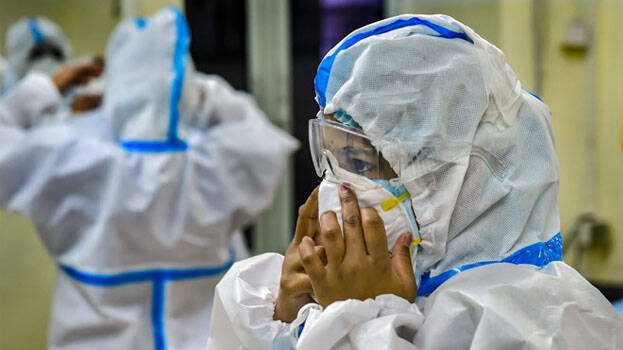A 50-year-old fully vaccinated female, with a travel history to South Africa in February, has been identified as the first case of the new Covid-19 variant XE.
As per the information provided by Brihanmumbai Municipal Corporation (BMC), the patient, a costume designer who was a member of a shooting crew, arrived from South Africa on February 10.
It is believed that the XE variant is 10 per cent more transmissible than the other Omicron mutations.
The women, on arrival in Mumbai, was asymptomatic and had tested negative for Covid-19. “But on March 2, in a routine testing, conducted by Suburban Diagnostics, she was found positive and was quarantined in a hotel room,” a BMC statement read. Within 24 hours, she turned negative on her next day’s test.
Later, the BMC in its eleventh batch of genome sequencing at the civic-run Kasturba Hospital, detected her with the new variant — XE subtype. A total of 230 samples were sequenced, of which 228 samples were identified with Omicron.
Speaking on the development, Covid-19 task force member Dr Shashank Joshi assured that there is no need to panic. “As it is a mutation of Omicron, which doesn’t involve lungs, it is believed that the XE variant will not cause severe infection. But there is a need to use masks, especially at crowded places,” he said.
India reported 1,086 new coronavirus infections and 71 fatalities, taking the total tally of Covid-19 cases to 4,30,30,925 and toll to 5,21,487, the Union Health Ministry said on Wednesday. The number of active cases dipped to 11,871. The active cases comprise 0.03 per cent of the total infections, while the national Covid-19 rate remained at 98.76 per cent, the ministry said.
Last week, the World Health Organisation had notified that a new strain of the Covid-19 Omicron variant, first detected in the UK, appears to be more transmissible than previous strains of the coronavirus, while asserting that Covid-19 remains a public health emergency of international concern and warning that it is “too early” to reduce the quality of surveillance.
The WHO, in its latest update, said that the XE recombinant (BA.1-BA.2) was first detected in the UK on January 19 and more than 600 sequences have been reported and confirmed since then.
Days after monitoring the continuous dip in coronavirus cases in the country, the Ministry of Home Affairs (MHA) last month decided to end all Covid-19 containment measures.
Source:IE







 Finance
Finance







